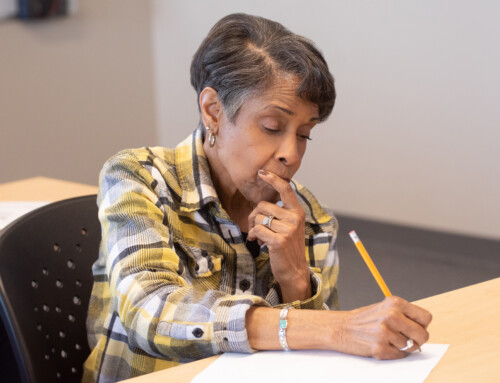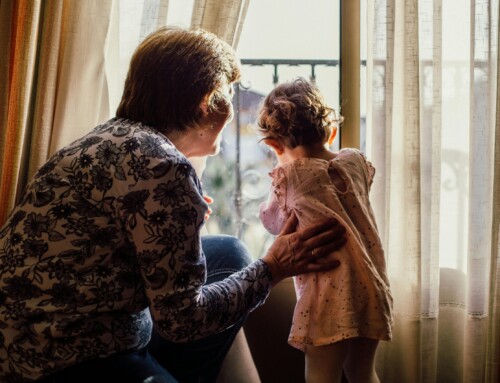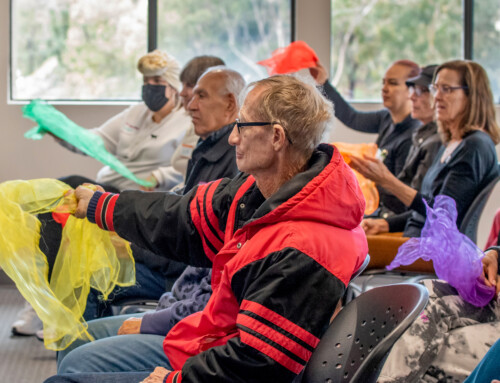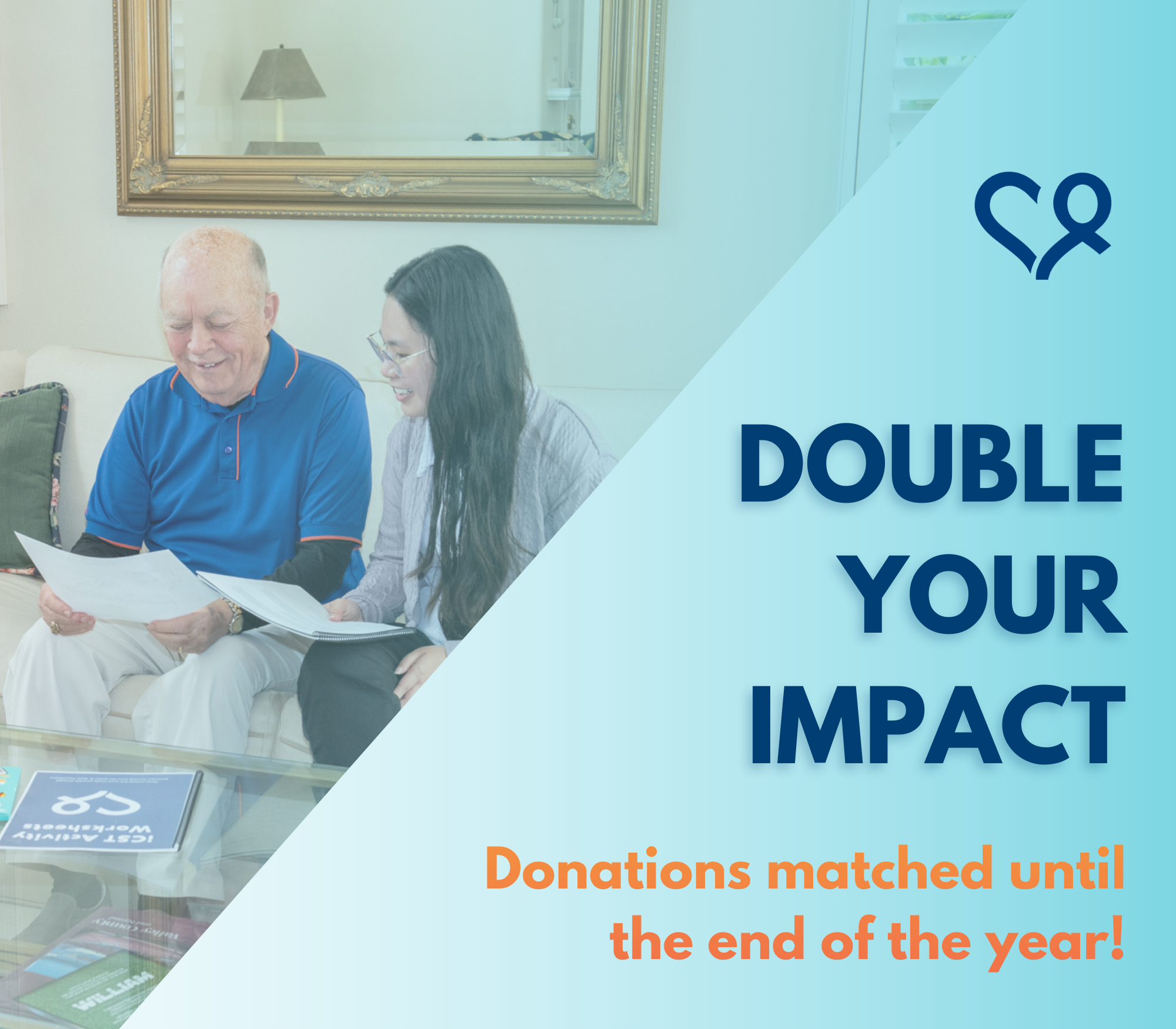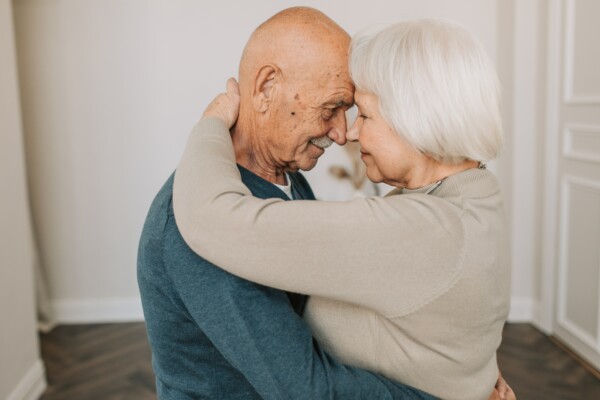
Welcome to the final part of our four-part blog series on Intimacy & New Relationships, where our Director of Clinical Services, Sarina Barker, discusses the very real ways that loneliness and the lack of intimacy can adversely affect your life. Part 1 / Part 2 / Part 3.
RECAP OF MY THIRD POST
Last week, we talked about some of the ways you, the caregiver, can begin to have difficult conversations with family members and friends around the topic of wanting to date again. The focus of this topic isn’t to convince anyone that you are ready to date, or to win their approval. Rather, it’s to help them begin to understand how your life has changed as a result of the effects of the disease on your partner. These conversations may take place as a part of your decision-making process and they may help you reach personal peace and acceptance with choices you make as you move forward. Only you can choose who needs to know and who doesn’t. In this series we have talked about understanding yourself, exploring some of the primary emotions you may have encountered as a caregiver, ways to talk with others about your choices, but the one area we haven’t explored is the area of talking to the person you want to date.
THIS WEEK’S TOPIC: SETTING EXPECTATIONS FOR DATING
For most caregivers, it has been many decades since you felt the giddy, nervousness that comes from a first date. Let’s face it – you’re out of practice and may be a bit nervous. Fortunately, you are not the same inexperienced person you were back then, you have more life experience, and also have a much more mature understanding of who you are spiritually, mentally and emotionally. As shared in the first blog, understanding your own emotions creates a strong foundation for you to better discern if the person of interest might be better as a friend or might be someone you want to pursue further in a romantic and, perhaps, a sexual relationship.
Begin with setting your own boundaries around what you feel this person needs to know now and what they could learn about you later. Relationships take time to build and sharing too much upfront may not be a good thing. Think about what is most important to you: creating a friendly connection first or sharing that you are fully committed to caring for your partner who has dementia. There is no right way to go about these conversations, it is a personal choice. Honesty and openness before intimacy is a good rule. They should know your situation and your commitment to your partner before things escalate to an intimate level.
WHERE TO START?
When the time does come that you are comfortable sharing more about your situation, there are a few points you may want to consider:
Communication and commitment
Communication is the foundation of any type of relationship. Be upfront from the start about your partner’s illness. Be open about your experience in caring for your person as this will help to expand their understanding of who you are as a person and a caretaker. Talk about disease, the relationship with your person, the changes, and the grief. Don’t assume that the other person understands what you are thinking or what the history of your relationship with your partner has been. This might help to paint a picture of whether they feel you have enough capacity to invest in the type of relationship they desire. Make sure you both are on the same page. Their relationship with you must be compatible with your commitment. An ideal new partner would respect, appreciate, and admire your dedication to your ill partner.
Emotional intelligence and connection
One of the main ingredients of a long-lasting relationship is self-awareness. Being conscious of our actions, reactions, thoughts, feelings and emotions, and to think about them in relation to our value system. A high level of emotional awareness brings clarity and direction. If you want a relationship with someone else, you have to start to have a relationship with yourself. Emotionally intelligent people do not want to get into a relationship with someone who is not ready to invest – emotionally and physically – in a relationship. That said, revealing the depth of your emotional intelligence sets the foundation to create a trustworthy relationship. Be curious, listen, share goals, share values, plan for time together, and most of all be authentic.
If the person knows your intentions and acknowledgement of where you are emotionally, you will be better equipped to have those difficult conversations.
The family and friend dynamics
As we have learned throughout this journey of dementia, this is not an exclusive disease of the person but is a disease that impacts and unravels the entire family system. By staying open and honest, you are helping the person to understand more about the grieving process within the family unit rather than leaving them to their imagination about why the relationship is or isn’t secretive. If your family and friends are not ready to meet them, don’t force it; and keep in mind that there’s no such thing as a flawless relationship, simply because there’s no such thing as a flawless person. Instead, reassure your new friend of your intentions and willingness to share a life with them. When the timing is right, it will happen. It’s important that they know that the losses caused by Alzheimer’s disease brings tension, stress, and grief into the lives of everyone associated with the person afflicted by this disease.
Honesty and expectations, a balancing act
Every person that you have met and you will meet during the different seasons of your life carries with them their own stories. You will enter into their life and they will enter into yours at different chapters, and will give you the chance to write a new and different and unique story. This person will never replace your partner, but together you may be able to build a full, meaningful life that will be different from what you have known. Being transparent about what this relationship means to you (intellectually, physically, mentally, sexually) can be the foundation upon which, together, you can create a meaningful, loving future.
SUMMARY
Over the past month, I have provided you with some of the examples I have heard from my dearest clients. Your caregiving experiences will not be identical to another’s, but your caregiving journey will encompass a depth of emotions that aren’t seen from the outside. Your duties are many, and there isn’t much time to think about yourself and your needs. However, when the time comes that you are able to give a hard look at the person you have become, the person you long to be, and the person who has survived this journey. I encourage you to see yourself the way that we at Alzheimer’s San Diego see you – as a human who has loved deeply, lost your best friend and intimate partner, and who deserves to find happiness again. Leaning into difficult conversations is not an easy thing to do, but we are here to support you with uncertainties around intimacy, new relationships, and connection.
Talk to one of our Clinical Care Coaches by calling us at 858.492.4400, and view our free services like education classes, support groups, social activities, and much more. Links to the rest of the blog series: Part 1 / Part 2 / Part 3.
By Sarina Barker, MSW (Director of Clinical Services)

